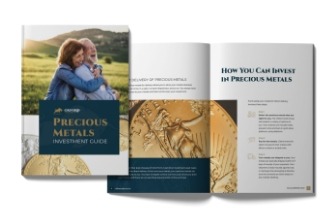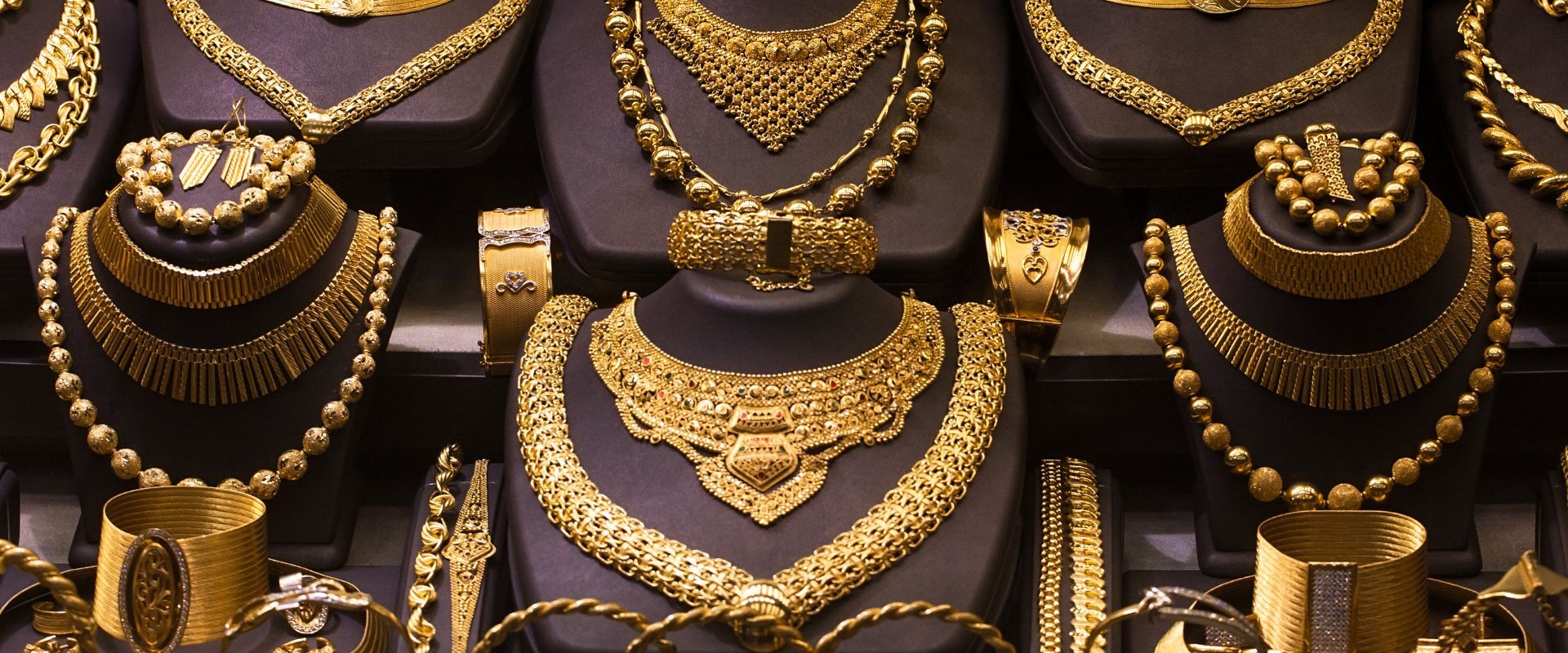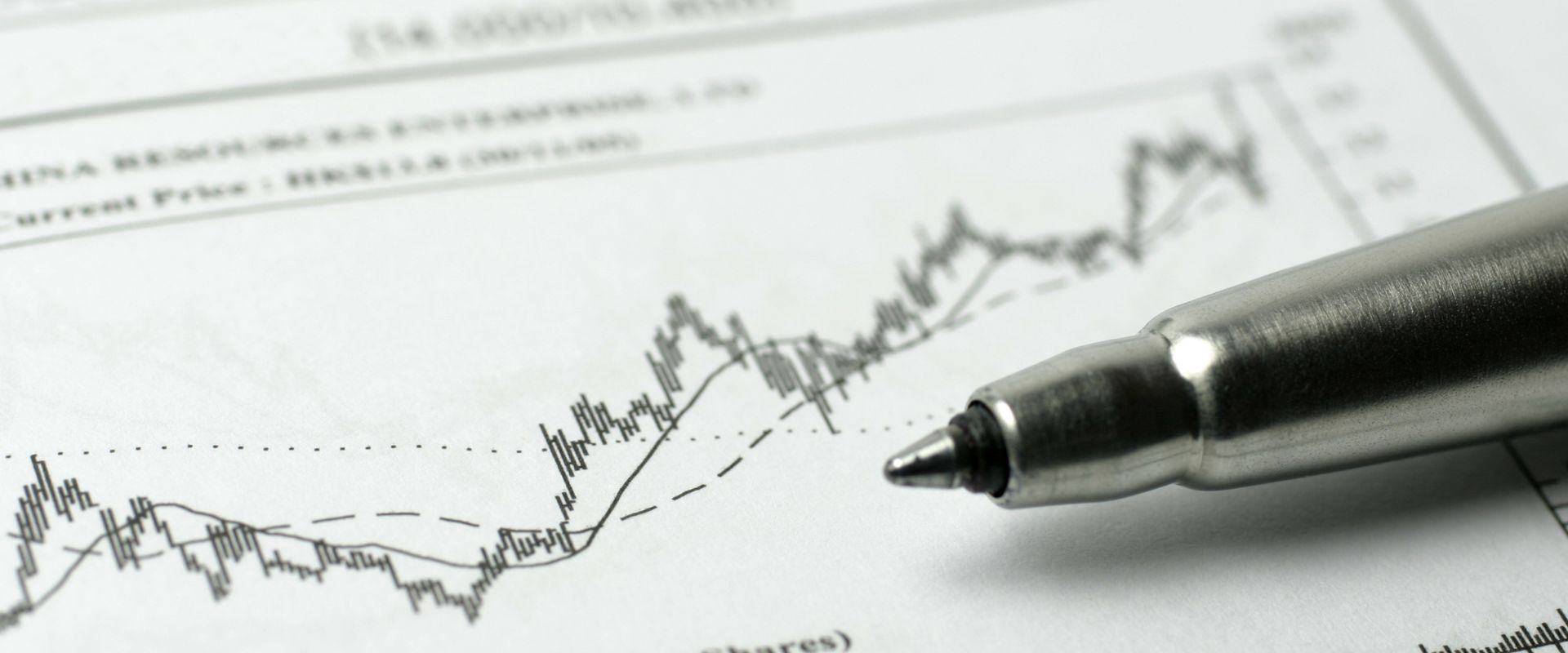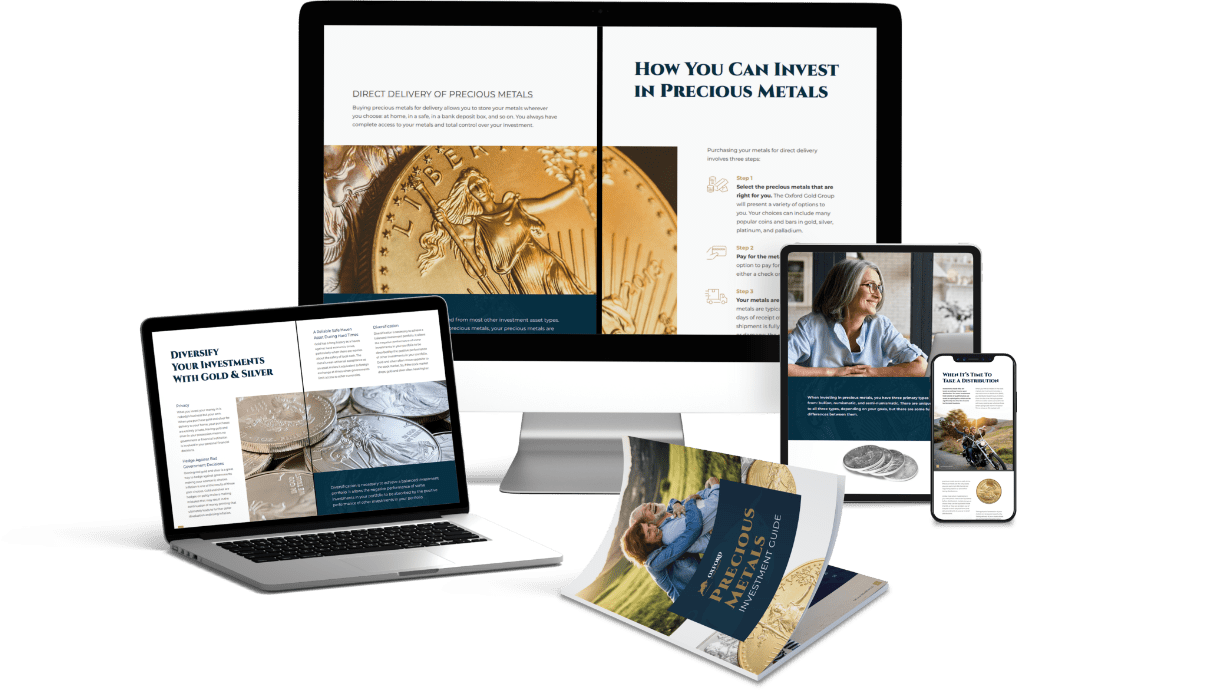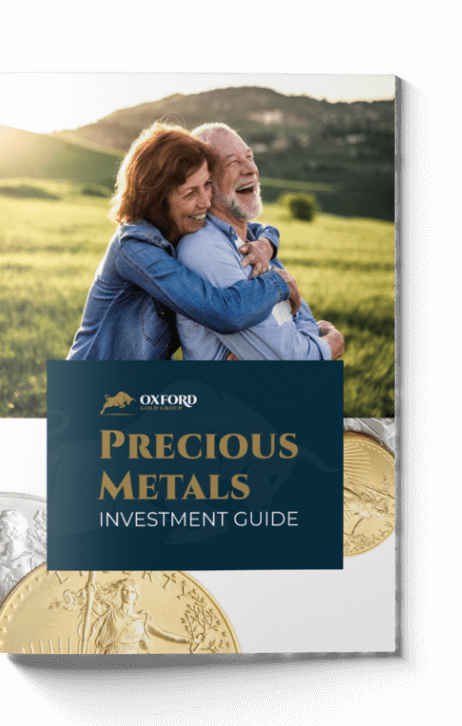Table of Contents
If you’re looking to diversify your investment portfolio, silver is an excellent precious metal choice. With its tangible value, silver easily acts as a hedge against inflation. That’s why so many investors choose to include it in their holdings.
However, when it comes to investing in silver, you have quite a range of options. For example, you’ll likely see both silver rounds and silver coins during your research phase. What’s the difference?s
Below, the Oxford Gold Group experts start with some basic differences between silver rounds and coins so that you’ll be poised to make a smarter investment decision.
Understanding Silver Investments
Silver is a precious metal, like gold, that investors have leveraged to protect their personal wealth for thousands of years. Unlike paper money, silver has inherent value. It is a rare metal for investing but also features a wide range of functional uses.
Historically, the cost of silver has remained very steady during periods of inflation. Many continue to view silver as a safe investment that protects the real value of one’s wealth. It also helps that you can invest in several different forms of silver, such as:
- Physical silver (bars, rounds, coins, jewelry, etc.)
- Silver stocks
- Silver mutual funds
- Silver ETFs
- Silver mining stocks
- Silver IRAs
Why choose physical silver over something else? For many investors, it’s the appeal of a tangible investment. Even if the stock market or the entire economy were to crash, you would still have that mound of silver in your hands to use as currency or trade for goods.
However, as you kick off the process of investing in physical silver, you’ll still need to decide which type of silver suits your needs and preferences. Which form is better? For instance, can you do more with silver rounds vs. coins?
Differentiating Silver Rounds and Coins
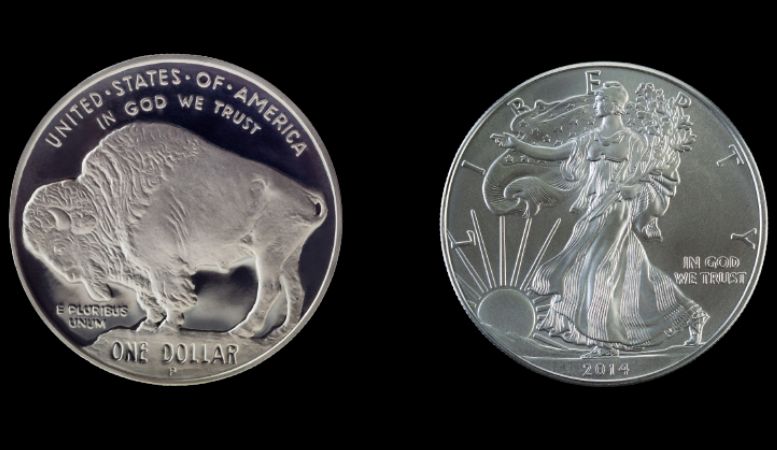
Silver rounds are small, coin-like pieces of silver that typically have engravings of symbols, animals, or historical figures. So, silver coins look similar to silver rounds, except that they hold actual legal tender status in their country of origin. You can use silver coins as currency; you can’t use silver rounds in the same way.
Understandably, silver rounds look like coins at first glance. Some manufacturers even design silver rounds to replicate ancient coins, which makes it easy to mistake a round for a genuine coin.
If they’re so similar, why are silver coins often more valuable than silver rounds? The answer lies in their collectible value. Coin mints only produce a limited number of silver coins in each design and date, adding a rarity factor to these products.
Investors look into silver coins to enhance their potential value due to their collectibility and acceptability as legal tender. These are the two main reasons that the value of a silver coin may exceed its inherent silver value.
Characteristics of Silver Rounds
Since silver rounds look like coins, it’s important to understand how to distinguish them. Both products are of similar size and depict images like animals or historical events. However, typically, you can identify a silver round through the following qualities:
- Denomination: Silver rounds are not legal tender and lack a denominational amount from the mint.
- Private mint: Any private mint can produce silver rounds. Only government-operated mints can produce silver coins.
- Price: Silver rounds tend to sell for lower prices than silver coins, though some sellers may overprice their rounds to trick buyers. It’s important to trust your source.
Silver rounds are typically 99.9% pure silver, though private mints may alter the silver content in their coins. While some hobbyists enjoy collecting different types of silver rounds, these products aren’t nearly as popular as silver coins. Their value is typically in line with the spot price of silver rather than supply and demand.
Characteristics of Silver Coins
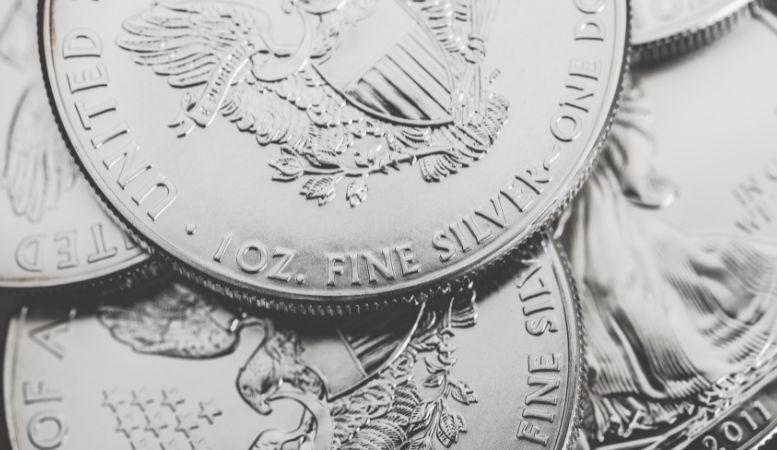
How can you distinguish silver coins from silver bars? Look at the following:
- Denomination: As a currency, silver coins have a specific denomination printed on them to indicate their value within the economy. For example, silver dollars have a “$1” marking.
- Government mint: Only government-operated mints can produce silver coins. The U.S. Mint produces silver dollar coins.
- Government-guaranteed: The government backs a silver coin‘s silver content. When you purchase a silver coin, you’ll have a guarantee of its precious metal content and purity.
Many silver coins contain 99.9% pure silver, though this isn’t always the case. With coins, you usually check the silver content with the government mint that produced them. These coins are also easily verifiable through third-party appraisers that focus on identifying features, such as laser engravings.
Value and Potential for Growth of Silver Rounds
So, when it comes to silver rounds vs. coins, the rounds typically only hold value because of their silver content at the spot price of silver. You can find silver rounds that contain one-tenth ounce, one-half ounce, and one ounce of silver.
Typically, a silver round will only grow in value if the spot price of silver increases. Historically, the price of silver fluctuated significantly, reaching an all-time high of $141 in 1980. However, aside from this outlier, the price has grown steadily over time, despite smaller dips and rises.
The spot price started around $11 in 1929 and, in the past few years, has lingered from $20 to $30.
Value and Potential for Growth of Silver Coins
Silver coins also hold value in their silver content, and most silver coins weigh around one ounce. As a result, you can expect your 99.9% silver coin to be worth at least the current spot price of silver. However, many silver coins also have a collectible value that tends to exceed the spot price.
An item’s collectible value depends on its rarity. Government mints only produce a select number of each silver coin. That’s why collectors looking to build out their portfolios are often willing to pay more for a rare silver coin than a silver round of the same weight and purity.
In fact, some of the rarest silver coins are worth hundreds of thousands in the collectible market. Take the 1893 S Morgan Silver Dollar as an example, with a whopping 2023 valuation of $550,000! The 1929 S Peace Dollar was only worth about ten times less than that.
How do you determine the value of a collectible silver coin? Start by researching how much dealers are currently selling it for. Extremely rare coins could sell for thousands, but most will more closely match the value of their silver content.
Factors to Consider When Choosing Between Rounds and Coins
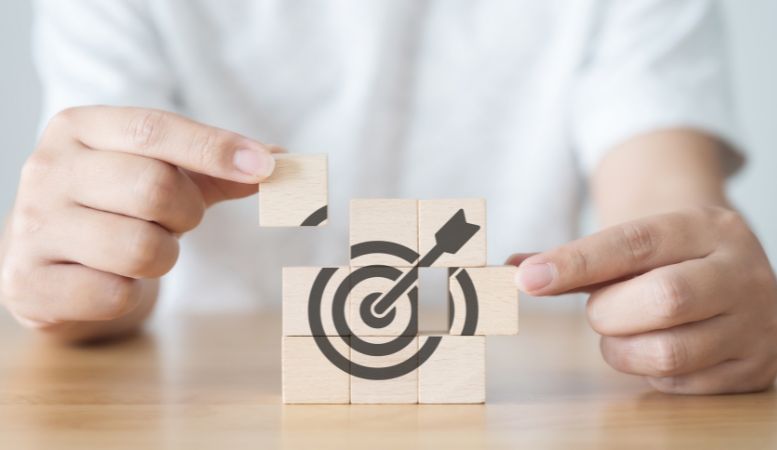
So, how do you choose between silver rounds vs. coins when building your investment portfolio?
Investment Goals
First, think about your purpose for investing in silver.
Do you want a safe place to store your money that may act as an inflation hedge? If so, buying generic silver rounds may suffice. You can sell these rounds for the spot price of silver if you decide to cash out your portfolio.
However, if you want to invest in potentially higher-worth silver products or enjoy the idea of chasing down rare collectibles, silver coins may be a better option. You can often sell silver coins for more than silver rounds, but only if the silver coins you purchase have the potential to increase in value while you’re holding onto them.
Investment Type
Do you want to purchase silver to store in a vault and sell it when you’re ready to cash out? Perhaps you’d prefer a self-directed IRA?
If you’re planning to fund an IRA with silver, you’ll need to purchase specific silver products that the IRS allows. Most of these products are silver rounds and bars, not silver currency.
Budget
You also need to consider your budget when choosing your silver investment product. Silver rounds are typically the more affordable option that gives you the most silver for your buck. You’ll have to purchase coins for more, but they do offer some collectible value.
Dealer
Which dealer are you planning to buy your silver rounds or coins from? If you’re thinking of browsing at a pawn shop, you may want to look for coins. They’re easier to verify than rounds, as they have several distinct qualities that indicate their authenticity.
If you buy from a reputable dealer, like Oxford Gold Group, you won’t need to worry about the authenticity of the products.
Making an Informed Decision: Rounds or Coins?
Thankfully, when deciding between silver rounds or coins, you can’t go wrong choosing either option. While silver coins seem to be the more popular choice among collectors, rounds offer a more straightforward method of silver investing that still offers a great hedge against inflation.
Consider your investment goals, investment type, budget, and dealer. If you still can’t decide, why not purchase a few of each type?
Alternatively, chat with Oxford Gold Group about various gold, silver, platinum, and palladium products. You can purchase physical precious metals or fund a self-directed IRA. Browse our silver products to start the exciting journey of investing in silver rounds vs. coins or any other precious metal that can help you safeguard your legacy
